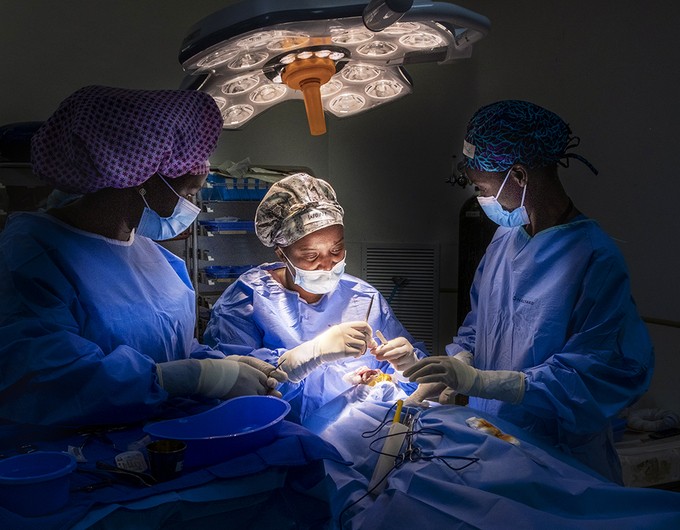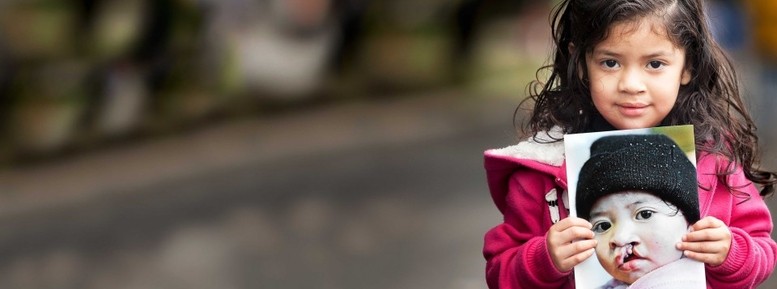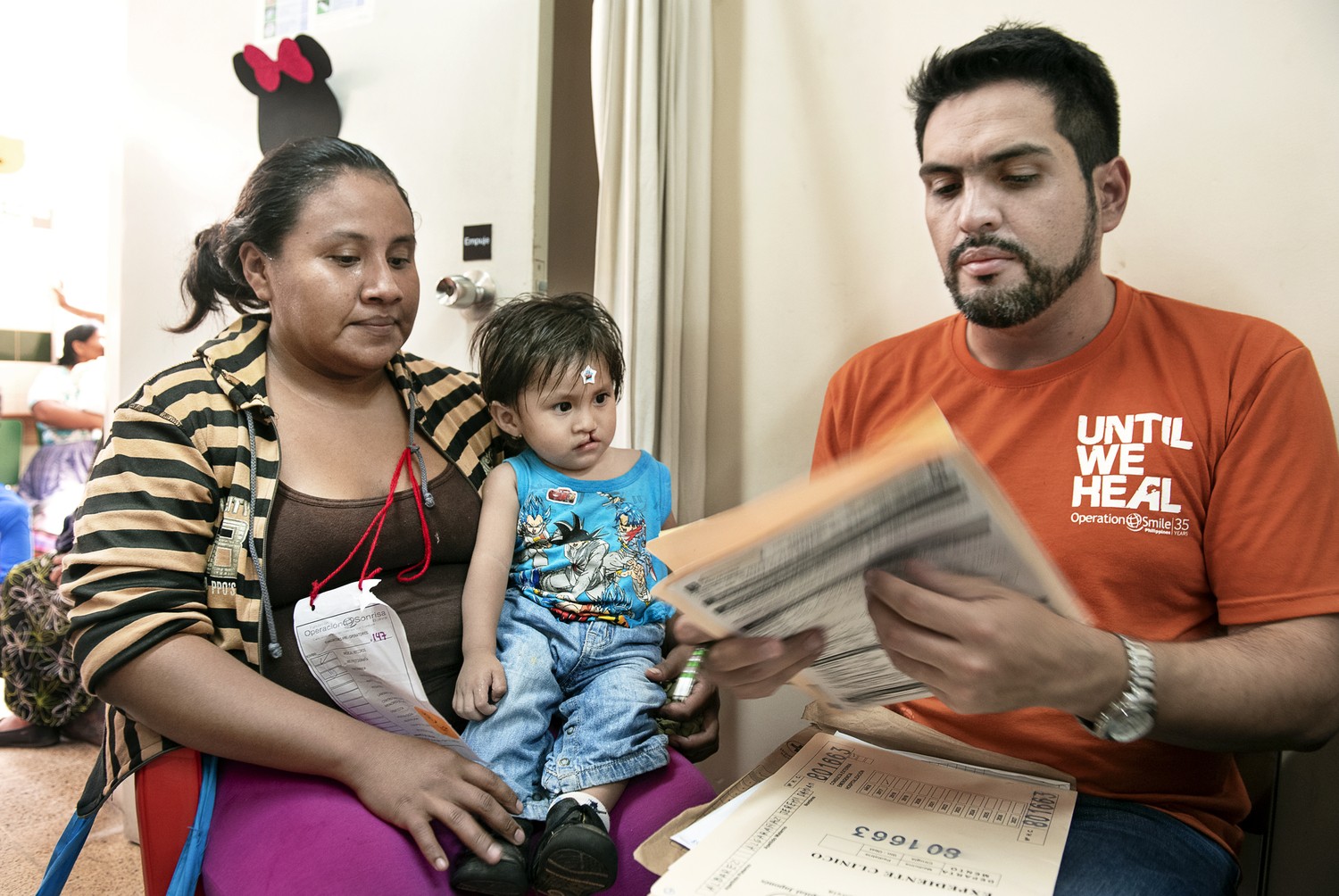
After obtaining his credentials and being certified in Mexico, volunteer cleft surgeon Dr. Carlos Dorado settled in Bolivia where he continued serving patients and committing his expertise to improving the lives of children born with cleft conditions.
In 2010, Carlos became an Operation Smile volunteer. Today, more than a decade later, he continues to leave behind a legacy of life-changing impact as Operation Smile Bolivia’s medical director.
“As plastic surgeons, we are fortunate to transform lives,” Carlos said. “I think we have a gift, the gift of operating. And if you add to this the passion, dedication, it is all what I love about Operation Smile.”
Each time Carlos enters the operating room, he does so with confidence and with the anticipation of changing a person’s life. But for him, everything else that follows the conclusion of a surgery is what changes the surgeon’s life.
“The surgical act is very brief,” Carlos said. “I think what’s behind the scenes is super important. For me, seeing children after surgery is like a finished canvas.”
We caught up with Carlos to learn more about which patients have impacted him throughout his time with Operation Smile as well as why he believes people must actively work at creating more moments of kindness for the families he meets.
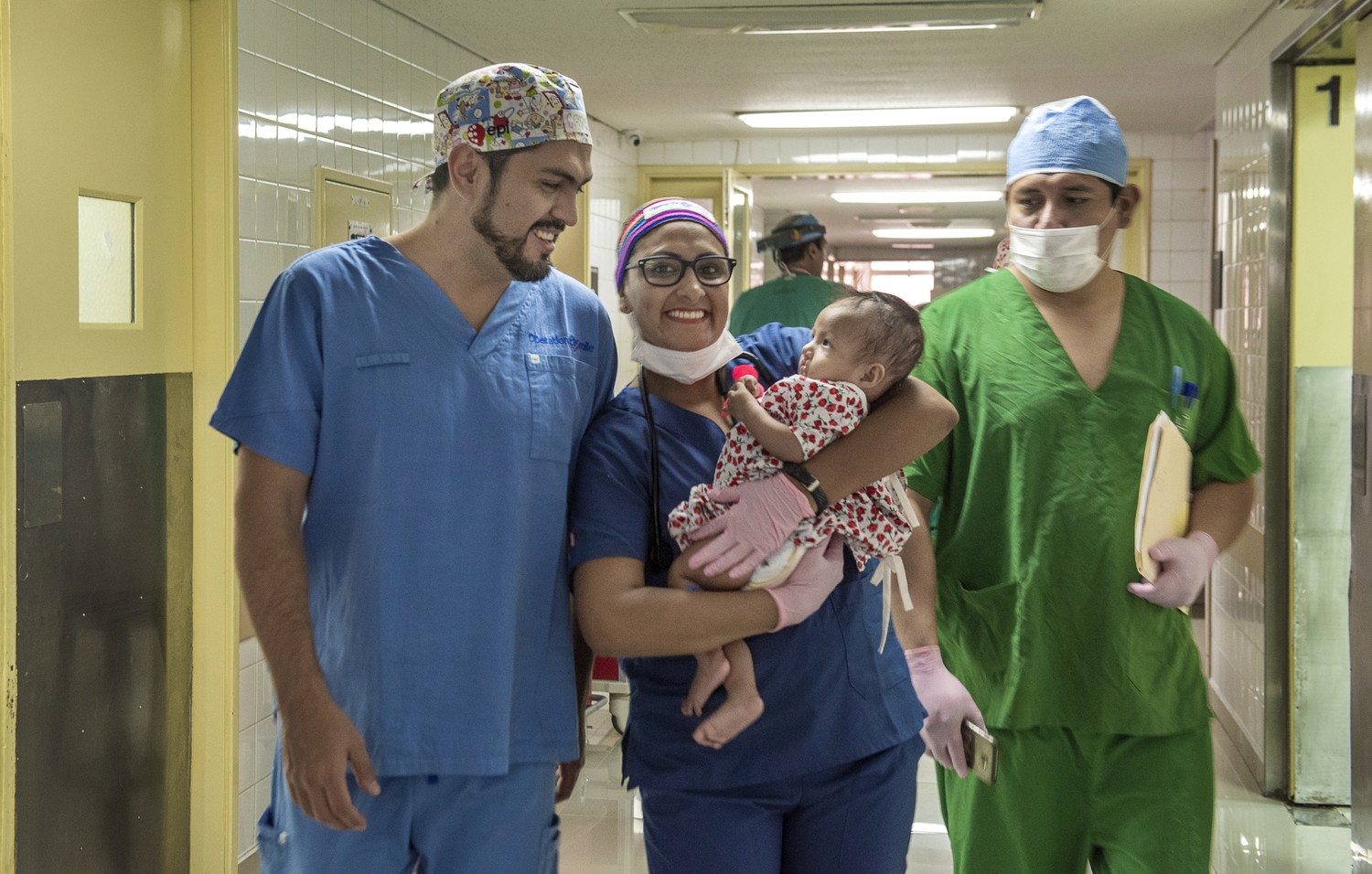
Q: What inspired you to become a volunteer?
A: “I found out about Operation Smile when I was a student, and it was always my dream to be a doctor who could help all around the world. When I was specializing, I saw that there was something much more specific and that it related more to what I like. I was fortunate to train with Dr. Guerrero Santos, who is the founder of Operation Smile Mexico, and he was my teacher. He is one of the most recognized surgeons, and I had an excellent mentor.
“For me, it’s my life. My plan is to work until my son graduates from high school and from then on dedicate myself only to this.”
Q: What sets Operation Smile apart from other organizations?
A: “First, I consider that it’s the most serious organization. They do not pay you, and that is a plus. I remember [Dr. Bill Magee, Operation Smile Co-Founder and CEO] saying that the day we start paying surgeons and volunteers, this will end. If you do this for passion and not for money, it is totally different. I have been tempted with money by other organizations, but when I decided to operate on these children, I decided to operate on them for free, even in my private practice. When my patients have money and want to pay, what I do is tell them to buy things and leave them at the foundation. Many buy milk and leave it with the pediatrician. I think that chain of good deeds is what can change the world.”
Q: What inspires you most about connecting with patients and their families?
A: “These children, with a difference due to some fault that affected them, they did not choose it, they had to be different. Something I never forget is when a joke is said about someone with cleft. In general, young children are very cruel because they don’t realize the power of their words. I had a 12-year-old girl for a consultation, and she did not even dare to raise her face. In addition, the entire family also suffers. The sad thing is that our health authorities care little about it. That's why I value Operation Smile, because I know that that’s the way forward.”
Q: You mentioned the family, what is the first thing you say to a mother when she arrives for consultation?
A: “That it’s not her fault. Because what happens is that they begin to blame each other a lot, between the mother and the father. The first thing you have to strike down is guilt. There are children who come out with blond hair and others with a cleft lip. The idea is to explain the problem in simple terms. And finally, the most important thing is to see that at the end of the tunnel there is a light, but that it is a long tunnel. That this child is going to need much more support and dedication than other children.”
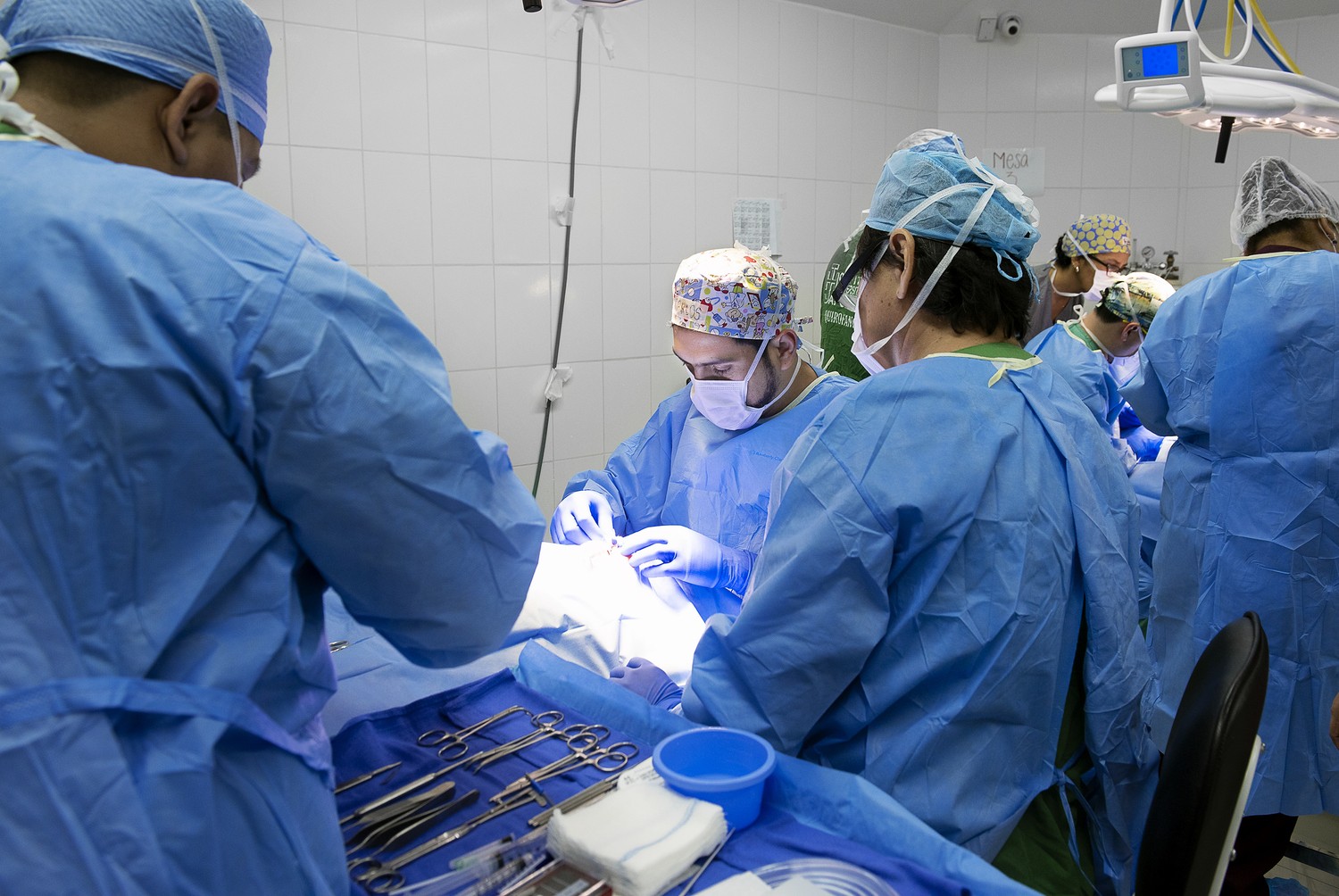
Q: What do you remember about Heydi, a patient of Operation Smile Bolivia, and her grandmother, Claudina?
A: “I really admire grandmothers. The first thing I do is thank them. Because they don’t have to be there. They say, ‘How am I going to leave this child?’
“I met Heydi and Claudina twice. The problem is that sometimes we lose track a bit. I would love to follow up on everyone, but I have already had more than a thousand children operated on. The good thing in Bolivia is that I go to the same places many times. I get to watch patients like Heydi grow. And they come and hug you. First, you remember the parents or the grandmothers and later you recognize the children. For me, seeing children after surgery is like a finished canvas. You did it. I assure you that they are happy.”
Q: What would you say to a donor to assure them that the money is going where it needs to go?
A: “I think the donor has to understand the magnitude of the foundation. It’s not just about surgery. Surgery is not even 30 or 40% of success. For a child to be incorporated into society, multiple specialties are needed. The donor also invests in research. I think Operation Smile is one of the organizations that invests the most in research. And there is also investment in student clubs, which are also fundraisers. Because they are the future. Wherever you happen to be, you don’t need to be a doctor to volunteer. With a story, you move their hearts, which is not only about the surgical act. Everything has a background.
“I know how important surgery is. But you also have to take into account that a patient has to learn to manage their muscles, how to manage their mouth, how to eat. The surgical act is very brief. I think what’s behind the scenes is super important.”
Q: Can you highlight some stories that have affected you emotionally?
A: “A young man in India, age 19, came to the clinic with a cleft lip. And the translator tells me that he wants to be operated on because he wants to get married. We operated on him, and he was super happy.
“Another case that had a great impact on me was in Chiapas, Mexico. An 18- or 19-year-old girl who had never left her community, her home, because they kept her hidden. She had only recently met other people, beyond her family and her nearby community.
“Another, a man told me one day: ‘Did you know that there are single dads? I am one of them. When my wife saw that my son was born with a cleft, she left.’ You hear a lot that the man is the one who leaves after the birth of a baby with a cleft condition, but women can also. When we showed him his son, he cried and told us that he wanted to be a volunteer forever. At present, he is the first who is willing to help, to unload shipments. He is a bricklayer, and in his spare time, he is also a taxi driver. His son is already 3 years old and doing well. He is going to start school.
“I believe that there is always a path of hope.”
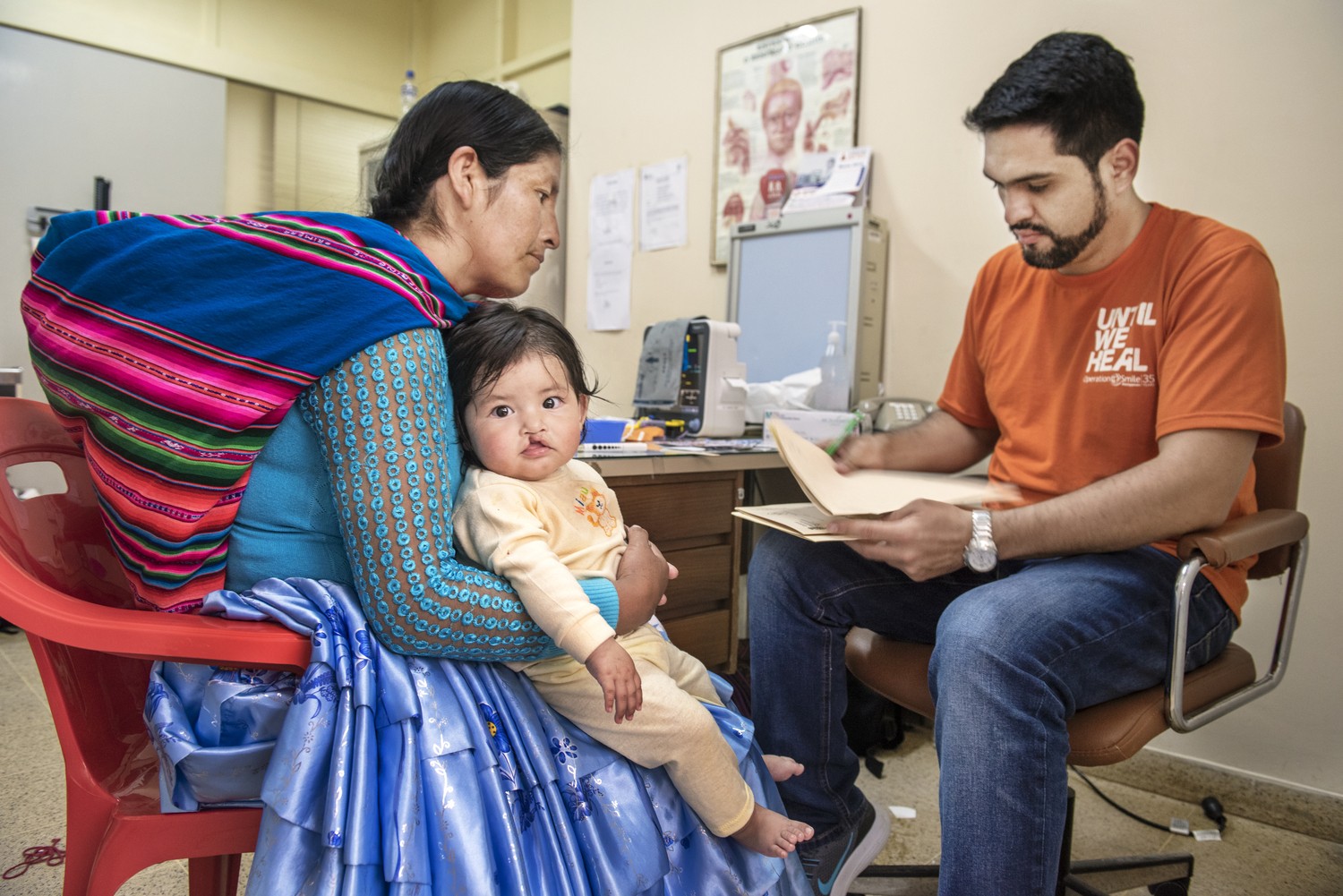
Our promise of improving health and dignity during the COVID-19 pandemic endures. Once again, we’re providing surgery and in-person care while taking stringent measures to keep families safe. Hope is on the horizon. And we remain focused on what cleft care makes possible for children, helping them to better breathe, eat, speak and live with confidence.
Latest Stories
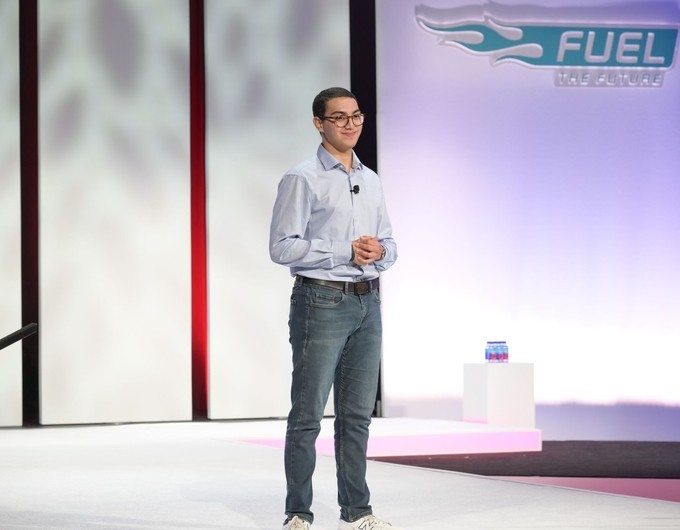
A Former Patient, Aymane Now Shares His Story

What is Operation Smile's Nutrition Program?
